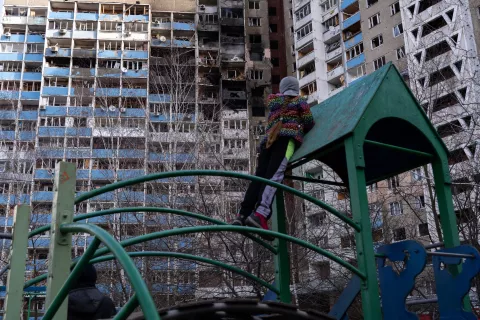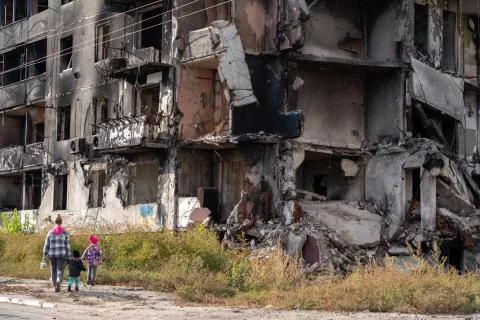Ensuring the health of babies born in displacement camps in Iraq
Find out how three health volunteers are making sure babies born in Debaga camp, in the Kurdistan Region of Iraq, have a healthy start in life.
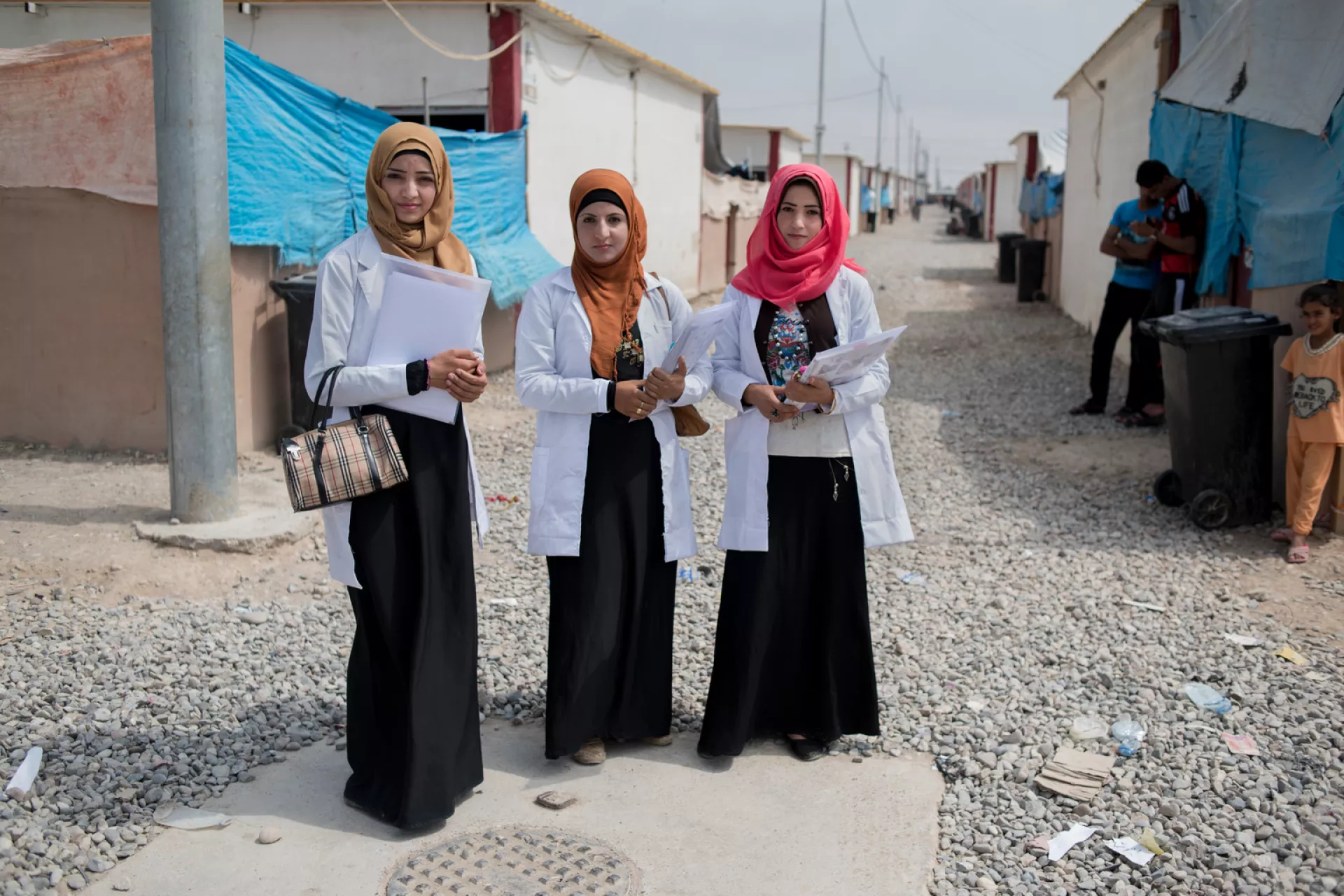
DEBAGA CAMP, Kurdistan Region, Iraq, 16 September 2016 – On a late summer morning, Debaga camp is thronged with people. The camp was built to house around 5,000 individuals, but the population has grown to more than 36,000 in less than six months as displacement increases from villages and towns near the city of Mosul.
Distinct among the colourful crowd in the camp are three young women wearing pristine white coats and clutching clipboards.
Maisaa, Suha and Muntaha, who live in the camp, are health volunteers supported by UNICEF and the Department of Health. They stop outside the temporary shelter of a displaced family from Mosul and remove their shoes before stepping into the living room. The space is cool and mattresses line the walls. In the centre of the room, a tightly swaddled newborn baby, Ruqayya, sleeps in a wooden crib. Maisa speaks with Ruqayya’s mother about her baby’s health and gives her a pamphlet explaining the benefits of breastfeeding. Then she unwraps the baby’s swaddling clothes and takes her temperature.
Ruqayya, just 7 days old, is the picture of health.
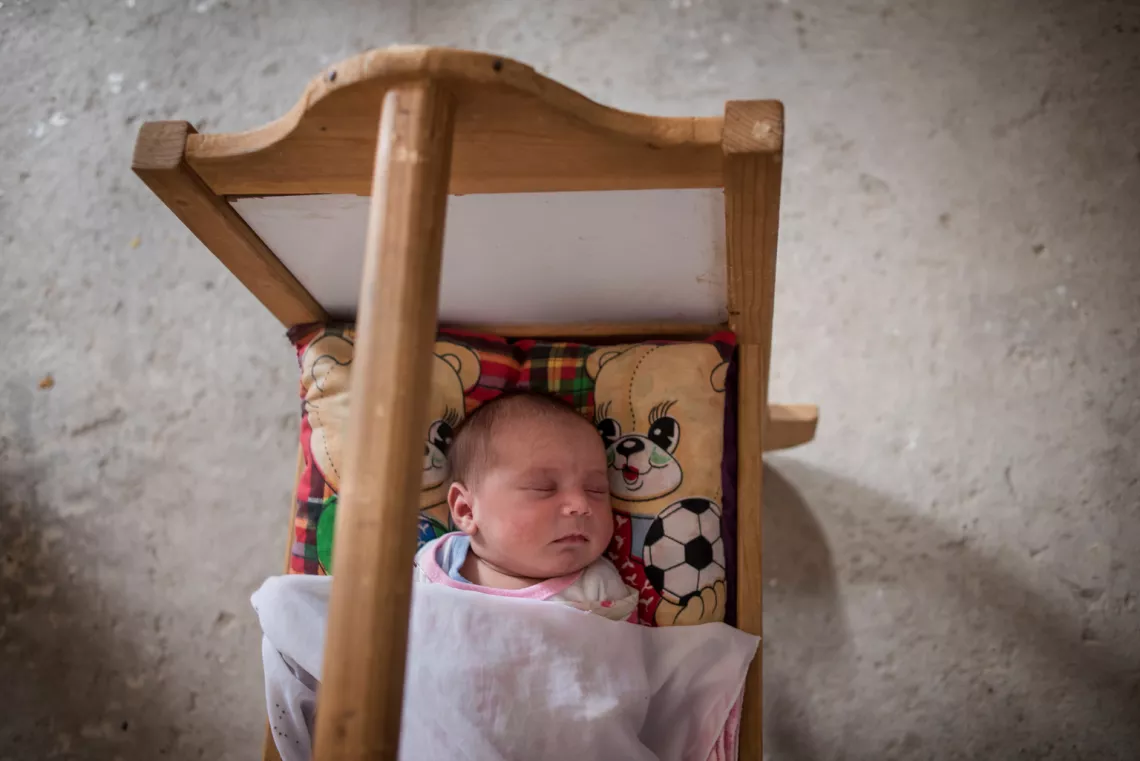
Reaching Debaga’s youngest residents
About 75 babies are born in the camp every month, and it is the job of these health volunteers to identify pregnant mothers and ensure that they have the information they need to keep their babies healthy.
The programme is supported by a generous donation from the Directorate General for the European Commission’s Humanitarian Aid and Civil Protection department (ECHO). The volunteers visit expectant mothers and newborn babies until they are 28 days old, six visits total. Mothers are also encouraged to visit the camp’s UNICEF-supported ‘baby hut’, where children’s growth and weight are monitored. Children who are underweight are provided with nutrition supplements.
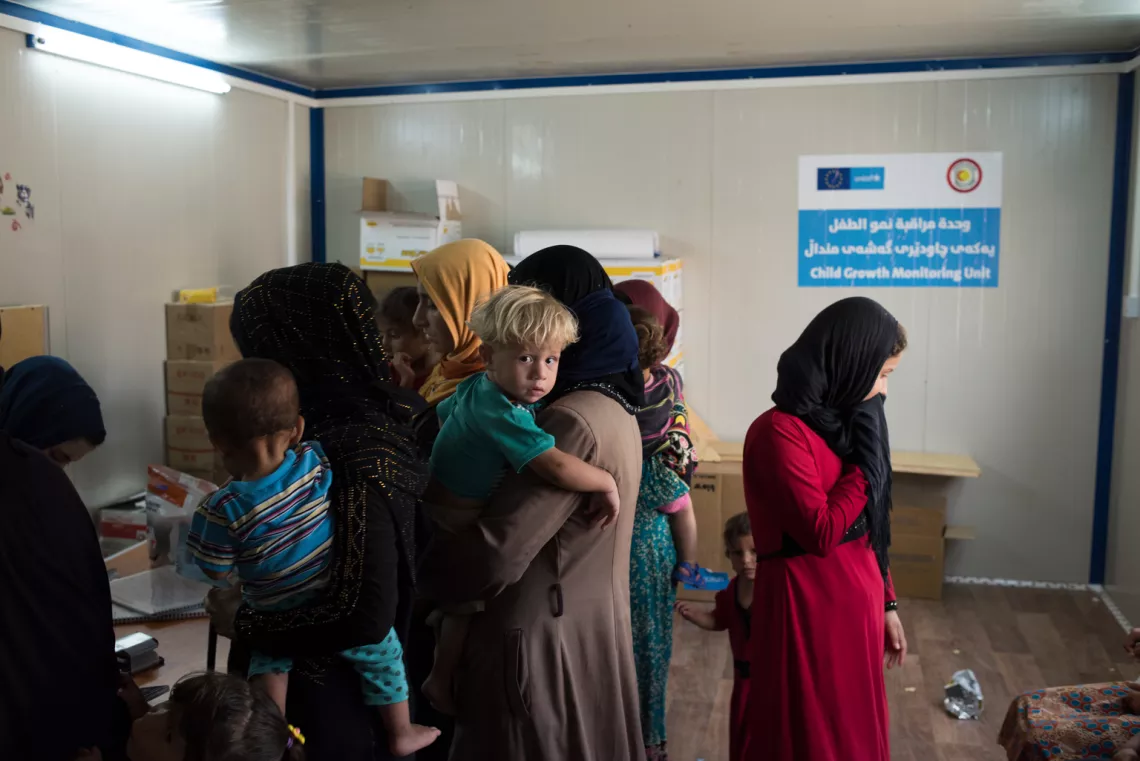
Vaccinations
Before fleeing their homes, many of the families in Debaga lived in areas under the control of armed groups for more than two years and lacked access to basic healthcare services. Many infants and young children arriving in the camp have had no vaccinations at all.
With funding from ECHO, UNICEF supports four vaccination teams in the camp, ensuring that children catch up with their routine vaccinations, as well as conducting special campaigns for measles and polio. A nine-day measles and polio campaign for all children under 15 has just concluded.
>> All children have the right to survive and thrive. Learn more about immunization and children in conflict
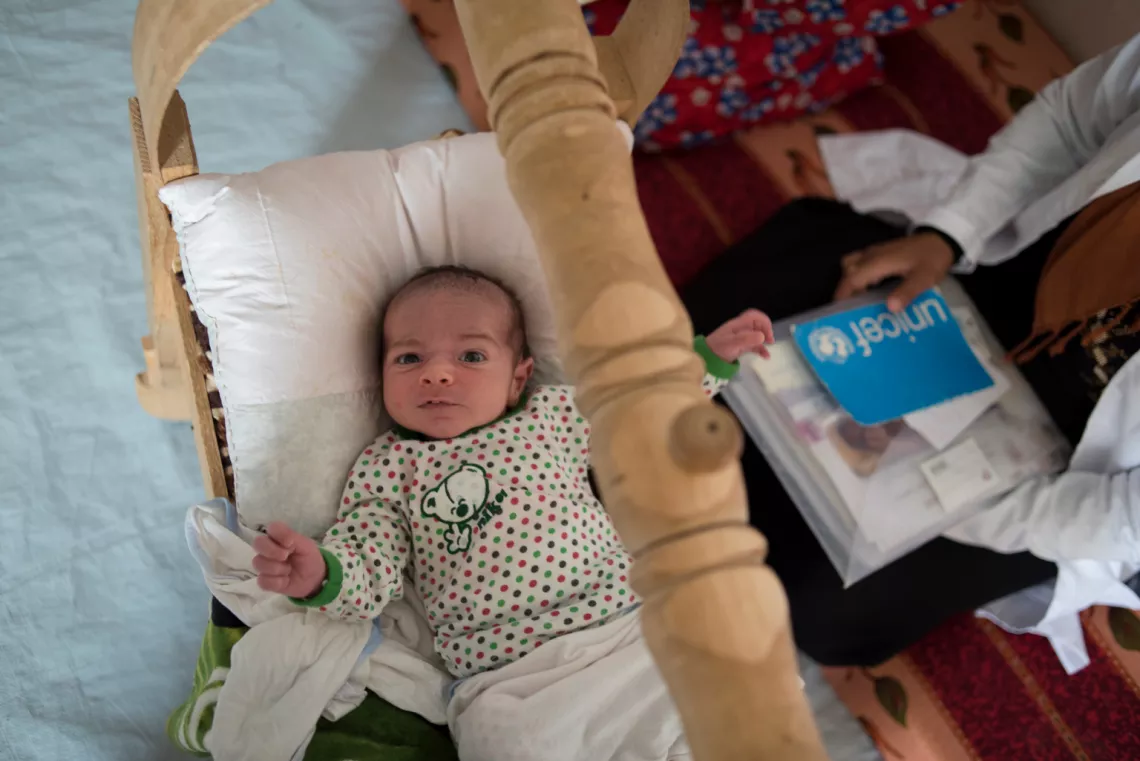
A valuable service
Continuing their rounds, the health volunteers visit baby Muhannad, who is 14 days old. This is the volunteers’ second visit to the family, and they are happy to note that Muhannad is visibly bigger than last time.
“It’s difficult living in a camp with young children,” Suha says. “The mothers don’t know what to do, so we’re providing a valuable service.”
>> Learn more about the humanitarian needs of children in Iraq

